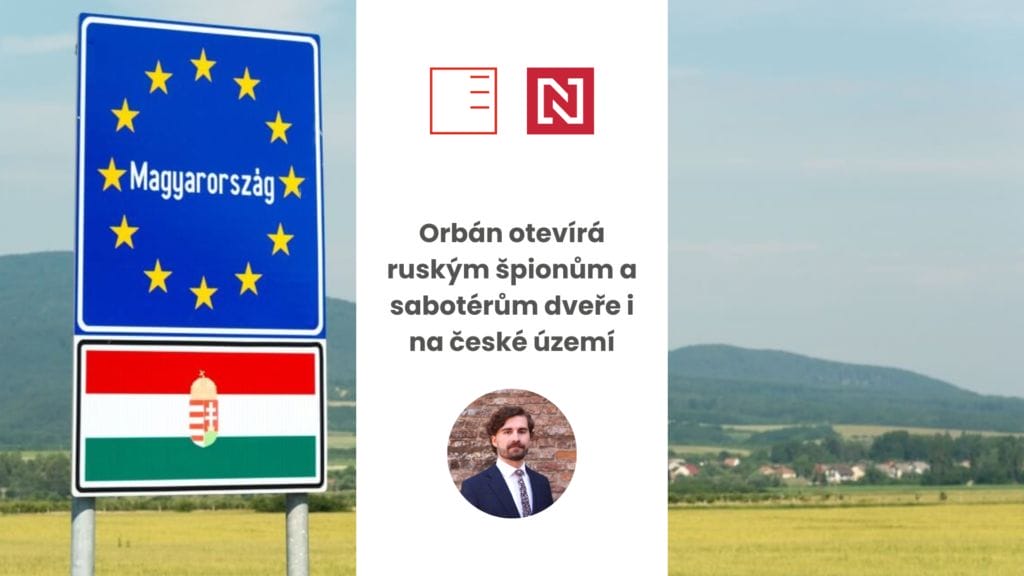Deník N | Orbán Opens Doors to Russian Spies and Saboteurs in Czech Territory
Viktor Orbán has recently stirred controversy in the EU by allowing Russian and Belarusian citizens to enter Hungary without controls. This move, which simplifies their movement within the Schengen Area, has raised concerns about security threats and pressure on European states. What impact might Orbán's policy have on Europe's security, and how are EU institutions responding? Viktor Daněk, Deputy Director of EUROPEUM Institute, discusses the situation for Deník N.
1. August 2024

Hungary does not have a land border with Russia, but by providing a legal regime for residence in the Schengen area without security checks, it would open backdoors and potentially offer an easy cover for operatives.
You can read the full article here.





